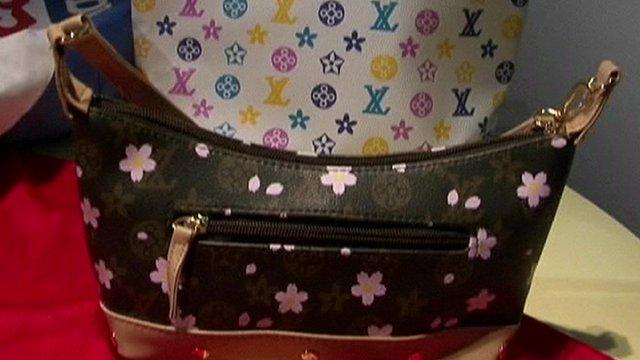What's wrong with buying fake luxury goods?
- Published
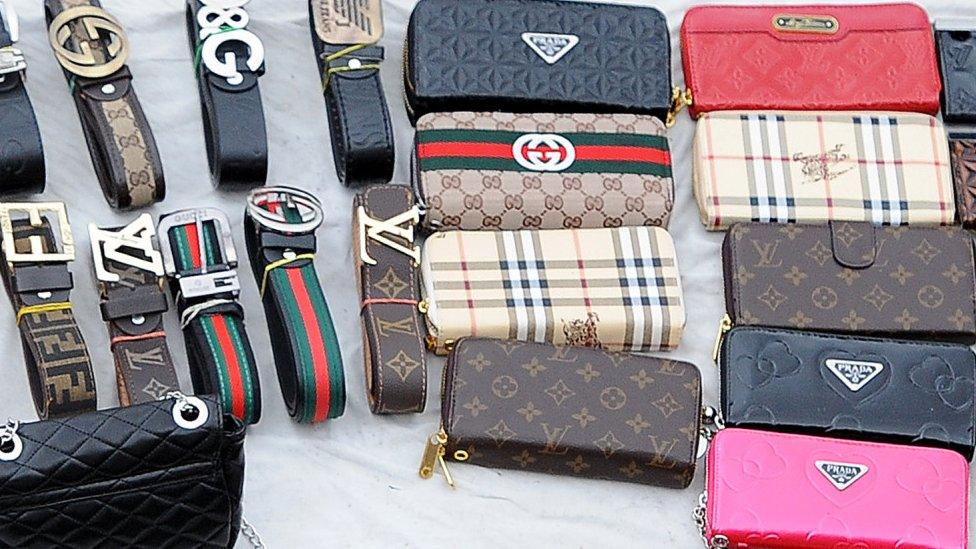
Every time a new haul of fake designer goods is seized we're told that the people who buy them are ruining the reputation of brands, stealing revenue from companies, contributing to an unethical labour market and subsidising organised crime. But is this really the case?
A BBC investigation has found over the past two years, thousands of fake goods were seized from black markets across England.
But is there any harm in nabbing a pair of "Louboutins" from a market, or a "Chanel" handbag from a chap selling them on a foreign beach? To the average punter it might sound a bit far-fetched that their cash goes straight to a drugs cartel or gun-runners.
We're not talking about alcohol, tobacco or medications - buying such items clearly poses a health risk. The same can be said for toys which aren't up to safety standards, and sunglasses which don't have the recommended UV protection. Nor are we talking about people who genuinely believe the goods they buy are the real thing.
We're talking about those who are happy to get knock-off designer items for knock-down prices. The people who are well aware there may be issues about quality and copyright - but don't actually mind.
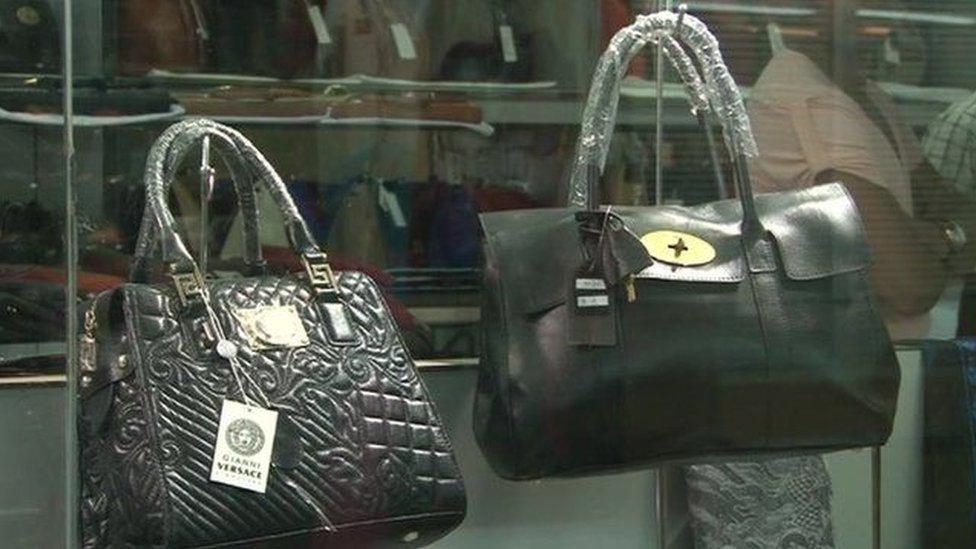
Would anyone confuse these "Versace" handbags on sale at a market with the real thing?
After all, are the people who buy fakes for a tenner really depriving the companies that sell goods for hundreds or even thousands of pounds? A woman who makes an impulse buy in a market almost certainly wouldn't otherwise invest in the real deal, while the wealthy buyers of the genuine brand pride themselves on knowing the difference and having the official article.
Where are England's black market hotspots?
As Steven Brown, from Batley, told the BBC in response to its revelations about the extent of the black market in England: "I've bought fake handbags for my wife. We both knew that a Gucci bag for £20 would be fake and not last as long as a real one.
"Is it really stealing revenue from a company if I would never buy a genuine Gucci bag?"
The fake market exists alongside the genuine one. It can be argued it actually helps the brands, by quickening the fashion cycle and raising brand awareness.
That's what David Wall, professor of criminology at Leeds University, believes. He says the issue of counterfeited goods "provokes a lot of outrage, but what about?"
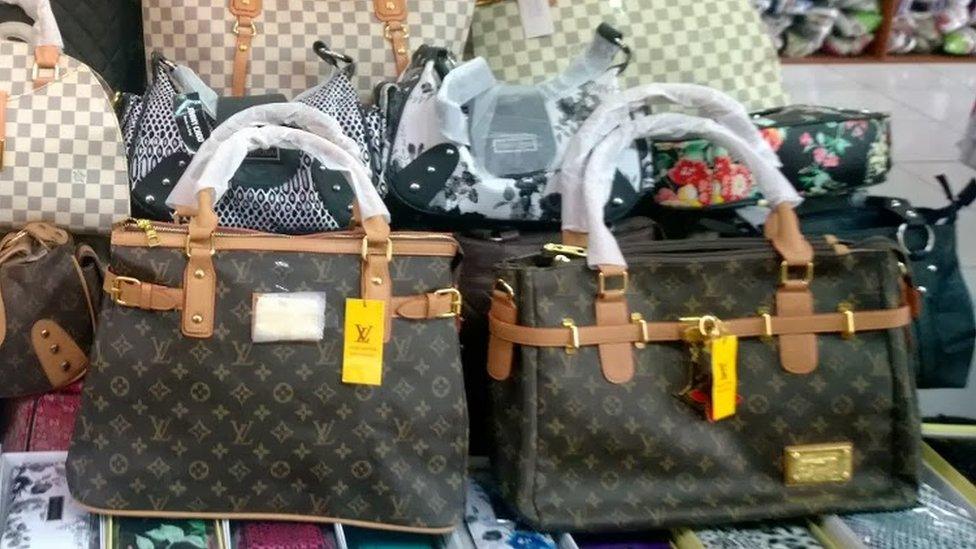
"Louis Vuitton" bags going for a song at a market stall
He argues there is little evidence provided that profits fund organised criminal gangs, external - although admits there is a problem with sellers of fake goods not paying taxes.
However, should that be an issue for the consumer? Do we have a moral responsibility to ensure the people we buy things from pay their taxes? Is that any of our business?
Arguably, the same goes for goods that violate the intellectual property rights of the designer. Most punters wouldn't see it as their moral obligation to look after the brands of the big fashion houses.
"I'm not condoning counterfeiting," Prof Wall insists. "It's just that it shouldn't be a police issue. It's a civil issue.
"And the same goes for people stealing a design, or a logo. Fashion is a complex market, and counterfeit fashion just as complex.
"After all, we buy fake items for different reasons. Many of us indulge in ironic consumption - such as a Breitling watch for a dollar. It's clear it's not real, it's just quite amusing.
"The real issue is when people think they're getting the real thing and they're not. Those people need to be protected. But the vast majority of consumers know exactly what they're getting".
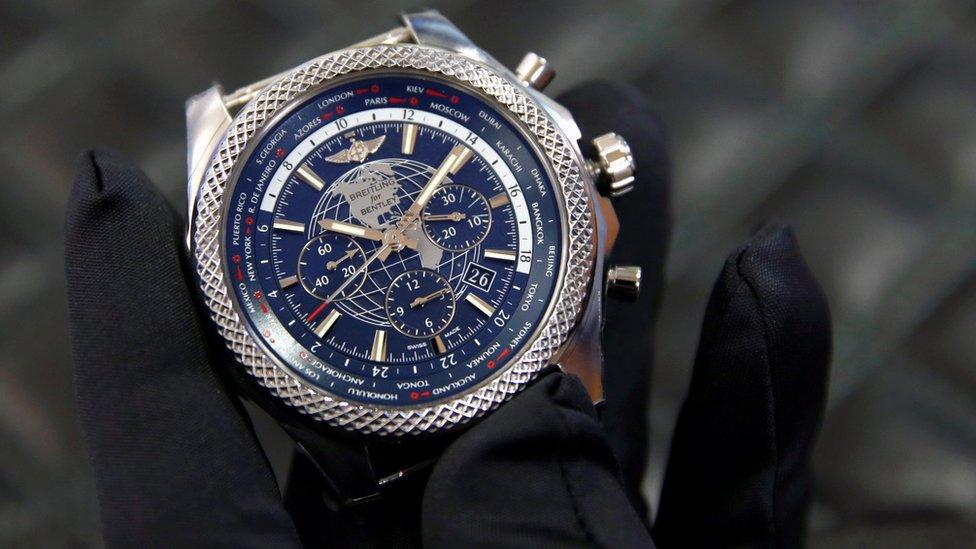
A real Breitling Bentley (pictured) watch sells for just under £10,000. Unconvincing fakes for the "ironic consumer" can be picked up for about $1
What about the argument that counterfeiting leads to the exploitation of workers in so-called sweat shops?
There's no reason to think it's more of a problem than with many "fast fashion" brands, such as Primark, external. How sure are we that anything we buy is ethically sourced?
Fake luxury goods still need to be made to a certain standard, or they wouldn't sell. There's still skill in the manufacture of making something that can be confused with the original, skilled workers are still needed.

Official position
The National Fraud Intelligence Bureau advises consumers to avoid buying fake goods because "you're helping the trader to break the law".
The bureau, which is affiliated to the City of London Police, also claims:
"Many fraudsters use the proceeds from selling counterfeit goods to fund drug dealing or other types of organised crime"
Counterfeiting "contributes to job losses because genuine manufacturers are unable to match prices charged by rogue traders"
"Genuine manufacturers are deprived of any profit"
The organisation urges people to report, external any instances of fraud.

Research suggests about three million consumers every year buy counterfeit goods carrying one of the top designer labels, such as Yves Saint Laurent, Burberry or Gucci. Nearly a third of the sales are over the internet.
Louis Vuitton is one of the luxury brands with a specific team dedicated to the management and protection of the company's intellectual property rights.
A spokesperson said: "Louis Vuitton believes that it is essential to preserve the house's ancestral know-how and the work of its craftsmen by fighting the illegal networks that infringe on human rights, the environment and global economy.
"In 2010, Louis Vuitton initiated 10,673 raids and 30,171 anti-counterfeiting procedures worldwide, resulting in the seizure of thousands of counterfeit products and the breaking up of criminal networks."
But despite the action taken by the fashion house, it's still pretty easy to get your hands on a replica.
One online shop is perfectly open about the fact it's selling a fake, cheerfully boasting that "the materials used are identical to the real ones. Trademark marks are indistinguishable to the originals".
What is distinguishable is the price. A genuine Monogram Zippy Wallet retails for £455, a fake one for about £40.
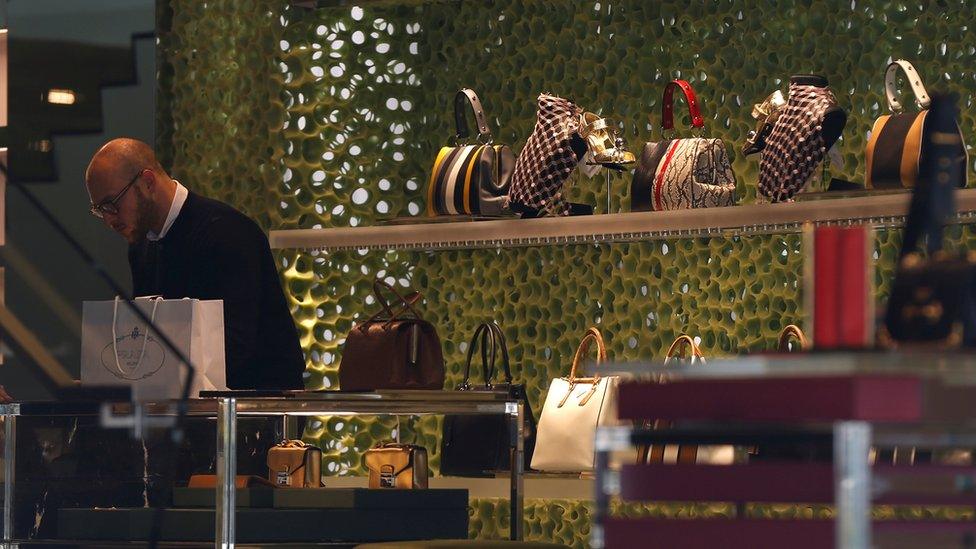
Genuine designer handbags tend to be displayed inside high end shops rather than market stalls
So who buys fake luxury goods, and - other than the "ironic consumers" - why?
According to Dr Haider Ali from the Open University, it's "people who have relatively little regard for the law" and "people who have negative attitudes towards big business".
"This may be because they feel that genuine brands charge unfair prices. Those people who see themselves as being shrewd shoppers willing and able to beat the system may also be more likely to buy counterfeits.
"Counterfeits may also appeal to those people who want to demonstrate their status, but don't have the funds to do so with genuine products".
Dawn Lawson from Herefordshire bought a fake Prada backpack for a fraction of the cost of a real one. She has no qualms about it, she says.
"I have little pity for the multinational companies that lose a minimal amount of profit. You're surely not expecting me to believe Prada or Louis Vuitton are going to go out of business because of replicas?
"Of course they're not. Besides, I love my bag - fake or not."
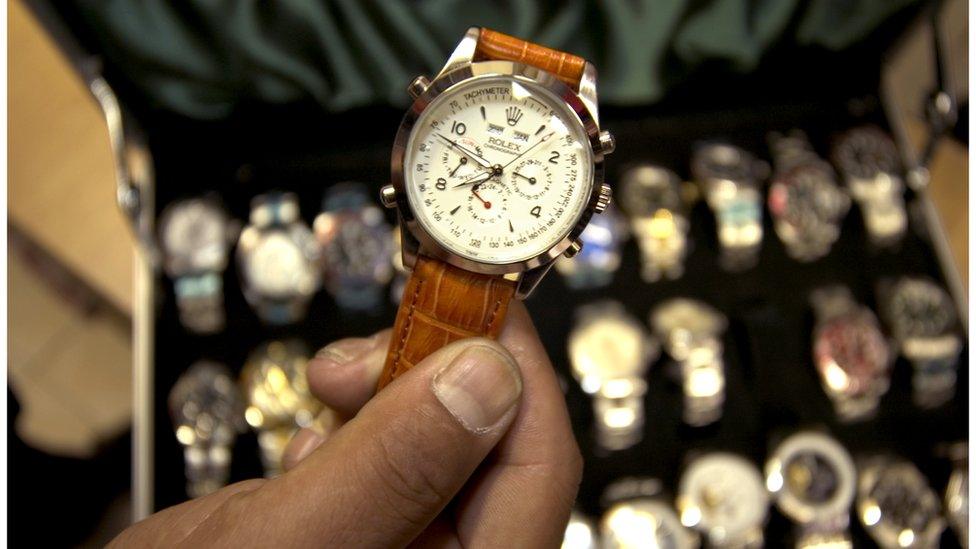
Fake Rolex watches can be bought for a few pounds. They're not as good as the real ones, apparently, although they are thousands of pounds cheaper
According to Prof Wall, who's advised the Home Office about organised crime, there's no need to have a moral argument about it.
"Policing counterfeit luxury goods is not in the public interest. People bow to the norms set by the fashion industry. High demand is an indication of successful brand. That's the way it is. It's up to the brand to invest in security for intellectual property.
"So long as people know what they're getting, there's really no need to get worked up about it."
- Published13 July 2016
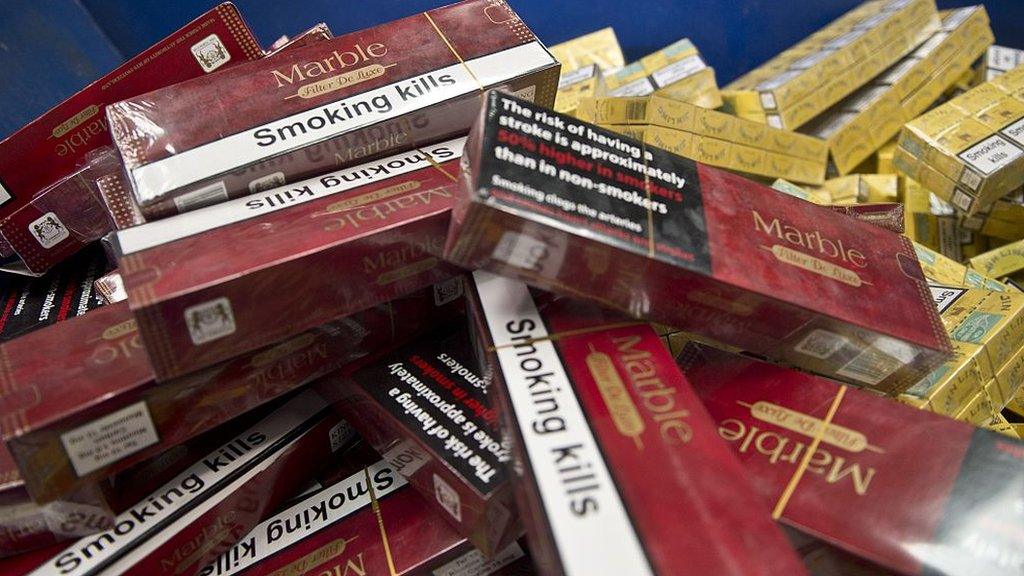
- Published18 May 2015
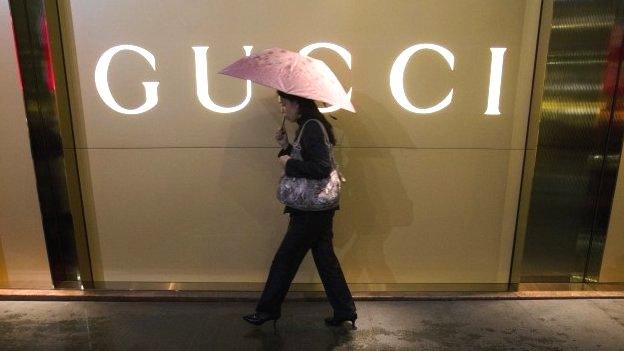
- Published6 February 2014
